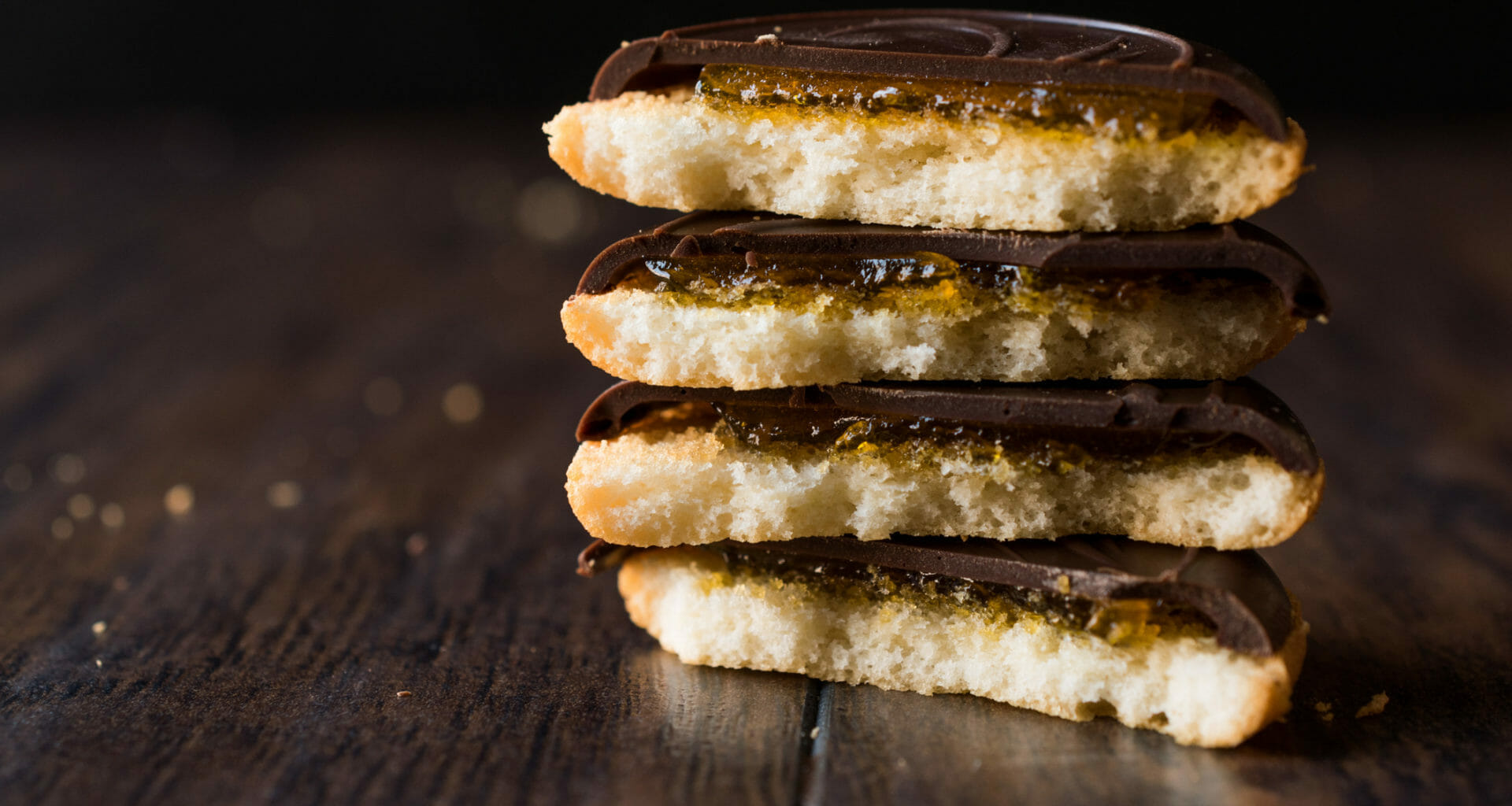
Nicola Sturgeon has waded into a controversy that has rumbled on even longer than coronavirus, after she gave her view on a certain popular sweet treat – the Jaffa Cake.
Asked by a reporter from STV News during the 9 October daily Covid-19 Scottish Government briefing about confusion over the definition of a restaurant and a cafe, the First Minister gave her view on whether the orange-flavoured snack was a cake or biscuit.

Ferret Fact Service looked at this claim and found it False.
Evidence
Jaffa Cakes were introduced in 1927 by McVitie’s, an Edinburgh baked goods company, and have gone on to be one of the UK’s most popular snacks.
The traditional small version is found in the biscuit aisle of supermarkets and shops, and they are regularly considered biscuits by consumers.
The question of whether they are cakes or biscuits has been a long-running controversy, with a 2017 YouGov poll showing the majority of the UK public agree with the First Minister that the creation is in fact a biscuit. Fifty-one per cent of those asked considered Jaffa Cakes to be biscuits, compared to just 38 per cent saying they are cakes.
The result was even more emphatic among Scottish respondents, with 60 per cent in agreement with Sturgeon’s view.
The controversy even reached the Great British Bake-off. In 2016, then-judge Mary Berry tasked the contestants to make Jaffa Cakes for their technical challenge as part of ‘cake week’. Yet the French version of the show, Le Meilleur Pâtissier, challenged their confused bakers to make the orangey treats in biscuit week.
However, the public and Le Meilleur Pâtissier appear to be misinformed, as the question of whether Jaffa Cakes are cakes or biscuits has actually been settled in court.
How did such a seemingly trivial question end up in the hand of lawyers? For tax purposes.
In the UK, Value Added tax (VAT) is due on chocolate-covered biscuits but not chocolate covered cakes. McVitie’s had classified their product as cakes, meaning no VAT.
This was challenged by HMRC, with the issue ending up in court in 1991 to prove Jaffa Cakes were biscuits or confectionary, and as such not exempt from VAT.
The adjudicator, Mr D C Potter, sided with McVitie’s that their product was a cake. He explained the criteria he assessed in coming to his conclusion, which are summarised below.
The name Jaffa Cakes was, he said, “a very minor consideration indeed”. He cited the ingredients, which showed that the sponge part of a Jaffa Cake was in fact cake. The texture was also important, he said.
He explained: “Generally, I would expect a cake to be entirely or mainly soft and friable, not able to be snapped and not crisp. The Jaffa Cake has the texture of a sponge cake, which the brittleness of the chocolate does not displace.”
The size he considered to be typical of a biscuit, as well as the packaging, which Mr Potter said was “uncakelike”. The product’s marketing was also considered to be typical of biscuits, as they would be unlikely to be found at the cake counter of a supermarket.
But another crucial factor is what happens to a Jaffa Cake when it goes stale. Unlike a biscuit, which would usually go soft, the Jaffa Cake goes hard and brittle.
The adjudication found that Jaffa cakes, while having features similar to both cakes and biscuits, fulfilled enough criteria to be considered cakes for VAT purposes. Mr Potter also concluded that “if it be relevant, I also determine that Jaffa Cakes are not biscuits”.
This meant that McVitie’s won the case and were able to continue selling Jaffa Cakes without VAT.
Ferret Fact Service verdict: False
Nicola Sturgeon’s contention that Jaffa Cakes are biscuits may be in tune with the majority of Scottish people polled on the issue in 2017, but it appears to be incorrect. Jaffa Cakes have been proven to be cakes in court, in order to keep their zero-rated VAT status. The court found that despite packaging and marketing similar to biscuits, they contained enough cake-like characteristics to be a cake, and not a biscuit.

Ferret Fact Service (FFS) is a non-partisan fact checker, and signatory to the International Fact-Checking Network fact-checkers’ code of principles.
All the sources used in our checks are publicly available and the FFS fact-checking methodology can be viewed here.
Want to suggest a fact check?
Email us at factcheck@theferret.scot or join our Facebook group.














